Pity poor Helen (Louise Brealey). The young woman with a soulfully miserable expression lives in a dowdy Northern Wales home with her oafish husband, her husband’s slatternly girlfriend, and her husband’s new baby. Her mother-in-law, the only person in the place who has a kind word for her, is dying. And at work in a chicken-packing plant, Helen has to put her hands in some pretty cold, sticky places. It’s not a spoiler to say that happier days are headed Helen’s way in Chuck Chuck Baby. Reminiscent of plucky working-class Brit uplifters like Kinky Boots and Military Wives, Janis Pugh’s film brightens Helen’s prospects with whimsy, community, and a gallant long-lost lesbian lover striding into the picture.
Feathers and dandelions delicately floating in the air suggest a lightness in Helen’s life beyond the dreary present. Early on, Helen sings along to Neil Diamond in the car, her accompaniment becoming an improvised musical number and a symbol of escape. Her boisterous, supportive colleagues at the plant have a tendency to throw themselves into comic song and dance scenes tossing chicken carcasses. These loopy, loosely choreographed musical numbers, along with the cozy oldies soundtrack, give the movie a lived-in feel and hint at an escape from reality.
Amid domestic turmoil and the slow, stoic death of Helen’s mother-in-law, a bright spot appears with the homecoming next door of dark and dashing Joanne (Annabel Scholey), a crush from Helen’s schoolgirl days. The two circle each other skittishly, then fall into a flirtation involving a large, blonde plastic doll’s head and a trip for Joanne into an outdoor bathtub fully clothed. The rapport between the two vibrates with a little too much twee whimsy, though quiet moments of tenderness between them feel more genuinely moving. Both Helen and Joanne have their reservations about themselves and each other. Both have been badly hurt. Can they reach out and touch?
Chuck Chuck Baby can warm the heart, but also make the mind need to stretch its legs. The milieu and attitude feel kitchen-sink retro, but period details aren’t fleshed out. Emotional tones can step over the line from poignant to schmaltzy. Scenes run long with a lot of air. And not just one character but many confusingly switch moods on a dime. Led by Helen’s husband, the village street subjects Joanne to shouts of vile (and cartoonish) homophobia. It’s a little perplexing because a half an hour later, Helen and Joanne’s love will be loudly cheered, hooted and hollered on by the entire boisterous chicken factory staff. Perhaps half the town hates gays and the other half thinks they’re the best things since boneless wings.
In the end, the sight of Helen’s face transformed from misery to radiance as she takes off her chicken smock for the last time makes one put aside questions of this sort. In the world of Chuck Chuck Baby, life can turn around with an airborne feather, a chicken dance, and an oldie or two—an oddly comforting thought.

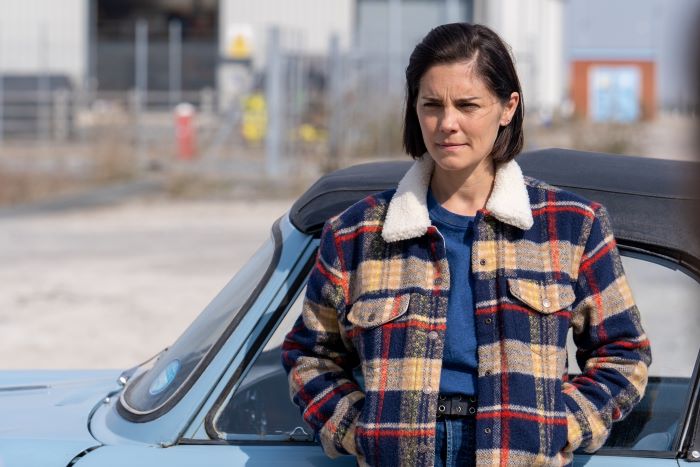

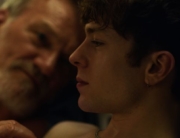
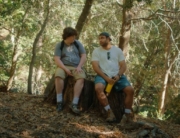
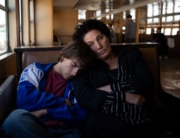
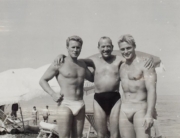










Leave A Comment